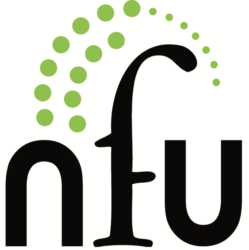Religion and Development
The past 20 years have witnessed a religious turn in development theory and practice. An interdisciplinary and dynamic research field on religion and development has emerged. At the same time, policy-makers and practitioners have recognized religion as a relevant factor for development. Against this background, the aim of the panel is to investigate the role of religion in processes of sustainable development in different contexts and from different disciplinary perspectives. First, relating to the institutional level: How do religious communities contribute to sustainable development in its economic, social and ecological dimensions? How do religious communities hinder these processes, e.g. through political involvement? Second, at an ideological level: How do the beliefs and values of religious communities relate to development objectives such as poverty reduction and the Sustainable Development Goals? A third stream relates to methodology: How can the impact of religion on development be traced?
Organizers:
- Philipp Öhlmann (Humboldt University Berlin, Germany / University of Pretoria, South Africa)
- Marie-Luise Frost (Humboldt University Berlin, Germany / University of Pretoria, South Africa)
- Wilhelm Gräb (Humboldt University Berlin, Germany / Stellenbosch University, South Africa)
- Ignatius Swart (University of the Western Cape, South Africa / VID Specialized University, Norway)
Political Ecology: Politics, Power, and Environmental Change
How do inequalities of power and wealth influence both the drivers and consequences of environmental change processes? Why and how do past economic or political injustices often appear to continuously impinge upon contemporary environmental problems? Who decides how we should pursue sustainability or sustainable development in the twenty-first century, and why are these proposals so often contested from both ‘above’ and ‘below’?
These and related questions have long been a source of reflection in the interdisciplinary field of study known as political ecology. Emerging from the work of anthropologists, geographers, and critical development studies scholars in the late 1970s, political ecology continues to be a leading source of innovative research on issues of conflict, inequality, poverty, and the environment. In short, this panel will examine new and emerging debates in the field, particularly those related to novel conceptual, methodological, and ethical controversies. Specific attention will be paid to the dynamic consequences of global environmental and economic change processes, with an emphasis on implications for diverse struggles toward alternative – and potentially more progressive – forms of social, economic, and environmental sustainability.
Organizers:
- Connor Joseph Cavanagh (Department of International Environment and Development Studies (Noragric), Norwegian University of Life Sciences
- Tor Arve Benjaminsen Department of International Environment and Development Studies (Noragric), Norwegian University of Life Sciences
- Hanne Svarstad (Department of International Studies and Interpreting Education, Oslo Metropolitan University)
- Mariel Aguilar-Støen (Centre for Development and the Environment (SUM), University of Oslo)
Challenging Actors in International Development
The dynamics of international development have always been marked by different actors fighting to control and define the field of “development” and dominate strategic thinking and financial flows. Yet, international development practices are heterogenous, with a diversity of actors presenting “alternatives” and resistances to mainstream discourses. This panel will cater for discussions about the post-millennial challenging actors; how they challenge the established systems and discourses of development and how their critiques form development “alternatives”. Social movements around the world have attempted to situate their vision of the world at a local level by seeking the “power of the people”. “Alternatives”, challenges and changes in development discourses and practices are emanating both from people and groups in the global North as well as in the global South. This panel will focus on the interconnections between the global and the local. Citizen initiatives within humanitarian aid and development are challenging established NGO systems and may lead to increased power to individuals and smaller groups. Religious actors are being recognised as important development partners but also use their powers to influence key goals, such as gender equality and reproductive rights. This panel will serve as a space for discussions about power and resistance dynamics in development; about challenging development as well as challenges in development.
Organizers:
- June Fylkesnes (University of Agder)
- Hanne Haaland (University of Agder)
- Hege Wallevik (University of Agder)
- Arnhild Leer-Helgesen (University of Agder)
